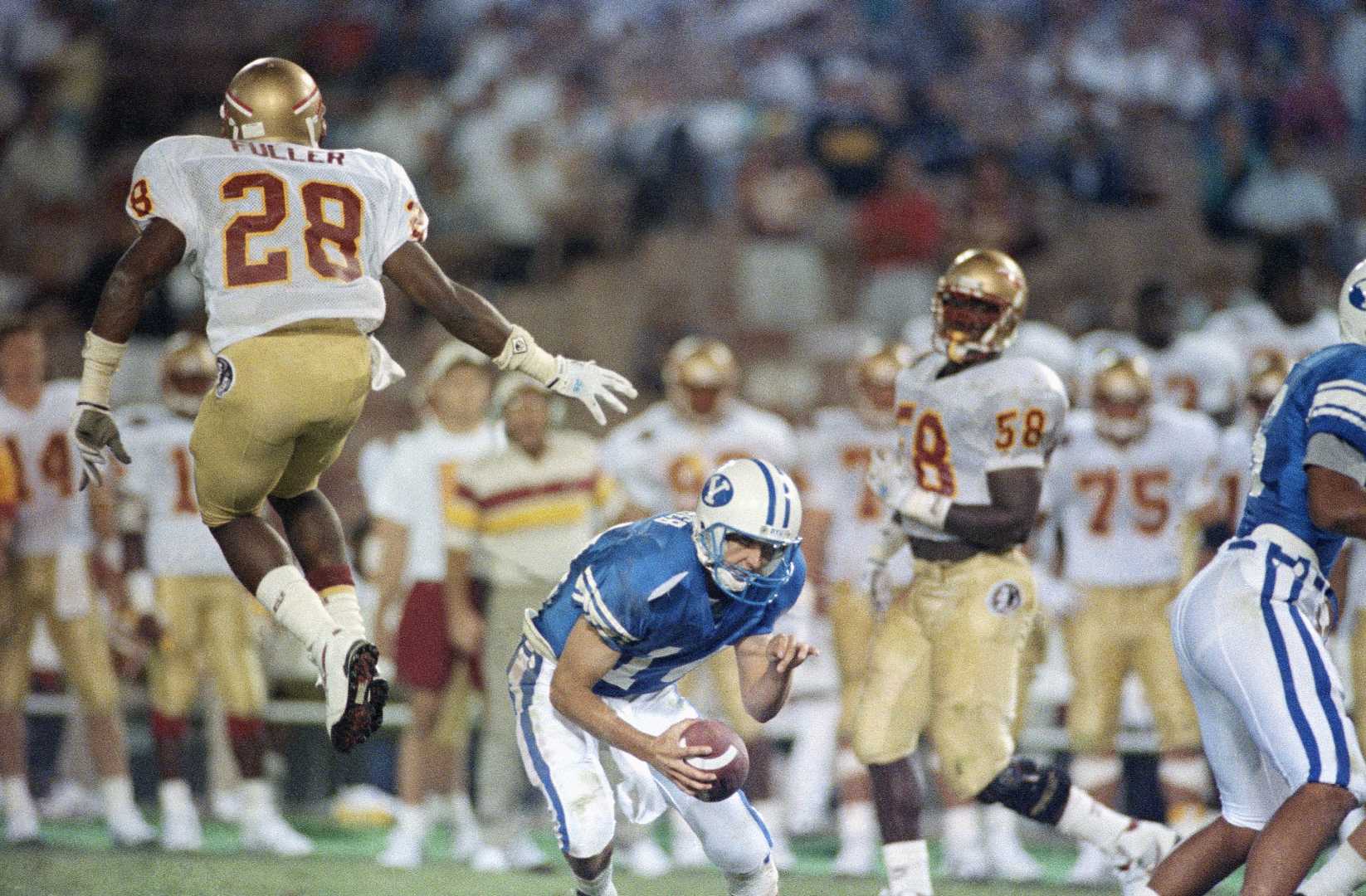Sports
BYU’s Historic 1984 Football Season: A Journey of Faith and Football

Provo, Utah, a city of approximately 115,000 residents nestled in the Rocky Mountains, is renowned for its affiliation with The Church of Jesus Christ of Latter-day Saints. However, beyond its religious significance, Provo is also etched in the annals of American college football history. In 1984, Brigham Young University (BYU), under the guidance of head coach LaVell Edwards, achieved an unprecedented feat by clinching the national college football title, marking a pivotal moment in mid-major college football history.
The 1984 season was marked by a series of serendipitous events for BYU. Led by head coach LaVell Edwards and quarterback Robbie Bosco, the Cougars embarked on an improbable journey that saw them rise to No. 1 in the Associated Press rankings. The team, known for its innovative passing offense, faced challenges and skepticism throughout the season, particularly due to its non-traditional strength of schedule.
“Our expectations were, we were going to win every game,” said Trevor Matich, BYU’s starting center in 1984, in an ESPN interview. The Cougars began the season unranked, following significant player losses, including Steve Young. Nonetheless, a pivotal victory over preseason No. 3 Pittsburgh set the tone for the season, capturing national attention as ESPN broadcasted its first-ever live college football season opener.
The Cougars’ ascent in rankings was accompanied by a chaotic national football landscape, where top-ranked teams frequently faltered. BYU capitalized on this upheaval, steadily climbing the ranks while maintaining its unbeaten status. Key victories over teams like Baylor and Tulsa bolstered their credentials, while Robbie Bosco’s performances became central narratives in BYU’s season.
The culmination of BYU’s season was the Holiday Bowl against Michigan, a game that solidified their claim to the national title. Despite suffering a knee injury during the game, Bosco led BYU to a 24-17 come-from-behind victory. “It had been a Cinderella story,” Bosco remarked, highlighting the skepticism their title bid faced.
ESPN notes that BYU’s national championship played a significant role in influencing the eventual formation of a college football playoff system. This was a response to the discontent surrounding mid-major programs being excluded from legitimate championship contention.
In 2024, as BYU, under head coach Kalani Sitake, finds itself again climbing the national ranks, echoes of their past glory resonate. With a current ranking of 13th in the AP poll, the Cougars aspire to leverage the expanded playoff system that now grants opportunities to programs like theirs. According to ESPN’s statistical analysis SP+, BYU stands a viable chance to compete in the postseason, with current performances reinforcing their potential to succeed in the competitive Big 12 landscape.
The journey from 1984 to the present illustrates a legacy of determination, innovation, and faith in the face of adversity. As Robbie Bosco and others from that era reflect on their historic achievement, the impact of BYU’s 1984 season remains a cornerstone of college football lore. “A day doesn’t go by where someone doesn’t bring it up,” Bosco acknowledged, affirming the enduring significance of BYU’s championship triumph.












